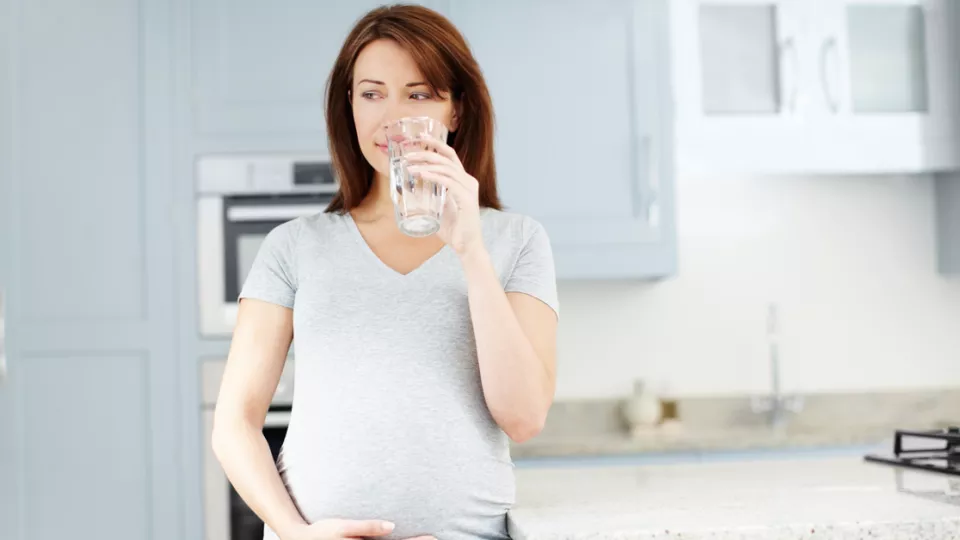
Pregnancy, Babies and Hot Weather: Read These Tips
Hot days can be tough on pregnant moms and young babies. But scorching summer temperatures can be more than just miserable. Both pregnant women and newborns are at higher risk for heatstroke. That can be dangerous for a fetus in the womb—and for a young infant.
So how can new and expectant moms protect themselves—and their babies—during summer’s searing heat? Arlene Garingo, MD, MPH, a Neonatologist at Children’s Hospital Los Angeles, shares some simple ways to keep cool.
Pregnant moms:
Stay inside.
The best strategy is to stay indoors during the hottest time of the day—from 10 a.m. to 4 p.m. And if you’re going to exercise outdoors on hot days, do so earlier in the morning or in the early evening.
“You want to avoid high heat and humidity. Try not to spend much time outside during the peak hours of the day,” Dr. Garingo says. “It can get hot indoors, too, so use a fan or air conditioner. A lukewarm shower at home can also help you cool down.”
Drink lots of fluids.
One of the risks of overheating is dehydration. To prevent this, drink 8 to 12 cups of water daily (64 to 96 ounces). Expecting mothers should also consider fluids with added electrolytes. Don’t wait until you’re thirsty to drink water, especially on hot days.
Wear loose-fitting clothing.
Choose light-colored and lightweight fabrics with natural fibers, such as cotton. Your feet can swell, so wear comfortable shoes. Outdoors, wear a wide-brimmed hat.
Call your doctor if your temperature spikes.
If your temperature goes up during pregnancy—for any reason—call your doctor right away. Also call your doctor (and get to a cool place) if you have these signs of heatstroke
- Fatigue
- Headaches
- Rapid breathing
- Dizziness or fainting
- Confusion
- Muscle cramps
- Uterine contractions
Newborns and infants:
Stay out of the sun.
Keep newborns and infants younger than 6 months out of direct sunlight. It’s also best to keep them mostly inside on hot and humid days, especially between 10 a.m. and 4 p.m.
“Babies in the first months of life have a very limited ability to sweat,” Dr. Garingo explains. “That makes it much harder for their bodies to cool down. They can overheat very quickly.”
Although it can be tempting to spend a hot day poolside or at the beach, the best option is to plan outdoor activities earlier in the morning or after 4 p.m., when it’s cooler. Regardless, keep the baby out of direct sun.
Give more breastmilk.
On a normal day, a newborn should be breastfed more than eight times in a 24-hour period. On hot days, you can give babies extra breast milk. Do not give them water.
For babies 6 months or older who have begun eating solid foods, ask your pediatrician if it is OK to give water—and if so, how much.
Don’t over-bundle your baby.
In your attempt to block the sun, don’t put too many layers on your baby. This can cause the baby to overheat.
Instead, dress your baby in one layer, using light-colored and lightweight fabrics. Don’t forget to add a light, wide-brimmed hat as well. Drape a light blanket over the stroller to keep the sun off.
Don’t forget: Slings, wraps and carriers for the baby can also get quite warm. Choose one that is made of light, breathable fabric. And never leave infants inside cars, as they can easily get overheated, with potentially fatal consequences.
Use sunscreen for babies 6 months and older.
Apply an SPF 30 or higher sunscreen 15 to 30 minutes before going out in the sun. Mineral sunscreens—which use ingredients like zinc oxide—are the best choice. Choose a broad-spectrum sunscreen that is labeled for babies.
Infants younger than 6 months have very sensitive skin and can overheat easily. It’s best to keep them out of the sun completely or cover them in a light layer of clothing. But in a pinch, you can use small amounts of mineral sunscreen on exposed areas of skin.
Don’t put your baby next to the air conditioner.
Becoming too cold can also be stressful for a baby. Don’t place a direct stream of air from an air conditioner or fan on the baby. A good room temperature range would be 68 to 72 F.
Watch for signs of heat stroke or dehydration.
In babies, these signs include:
- Cracked lips or dry mouth and tongue
- Fever (Call the doctor right away for any fever over 100.4 F in a baby younger than 2 months.)
- Restlessness or irritability
- Rapid breathing
- Heat rash or sunburn
- Decreased wet diapers
If you see any of these signs, call your pediatrician. Take your baby to a cool area right away and remove any extra layers. You can also use a spray bottle of water to lightly spritz your baby’s hands and feet.


